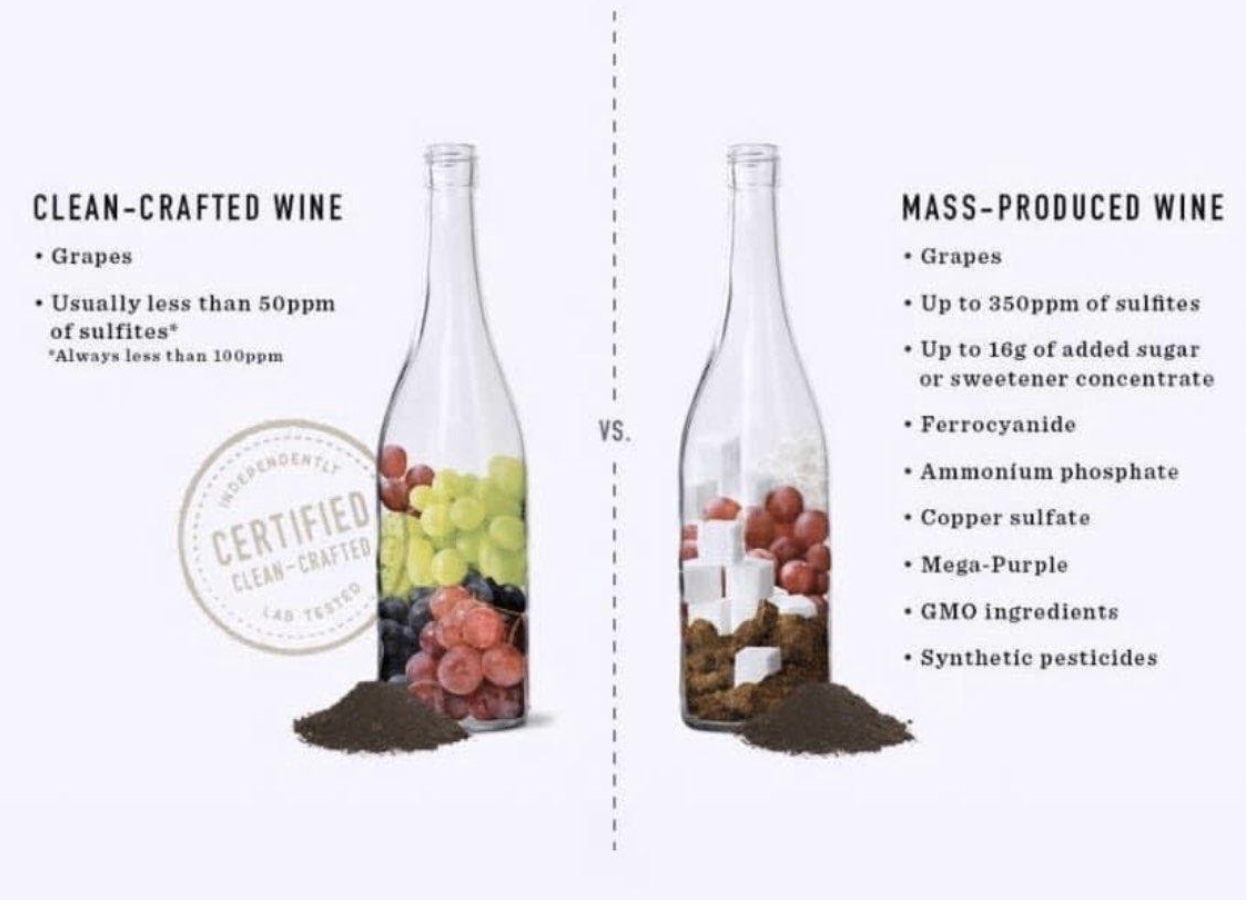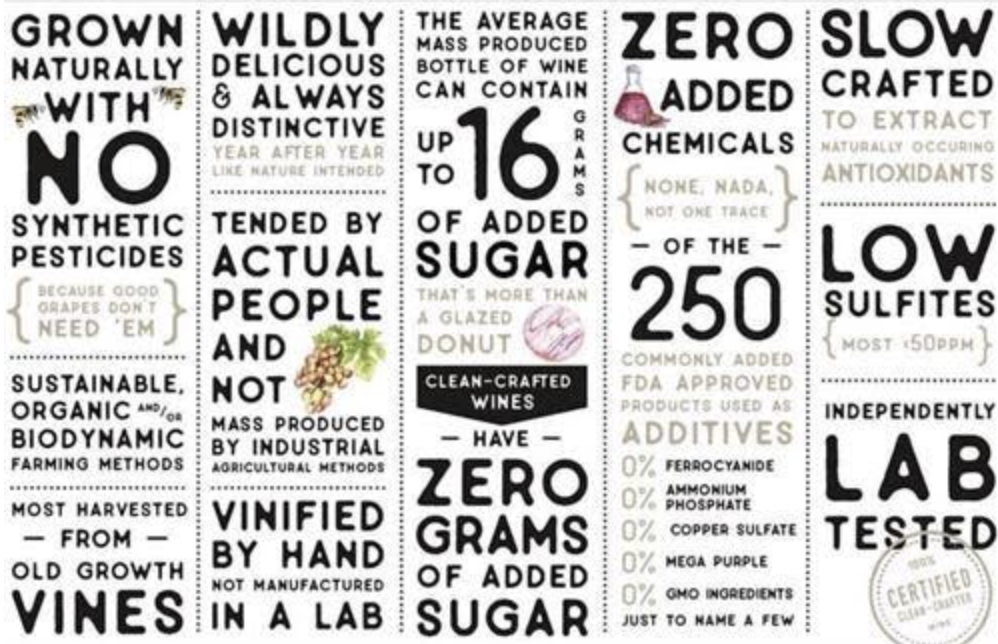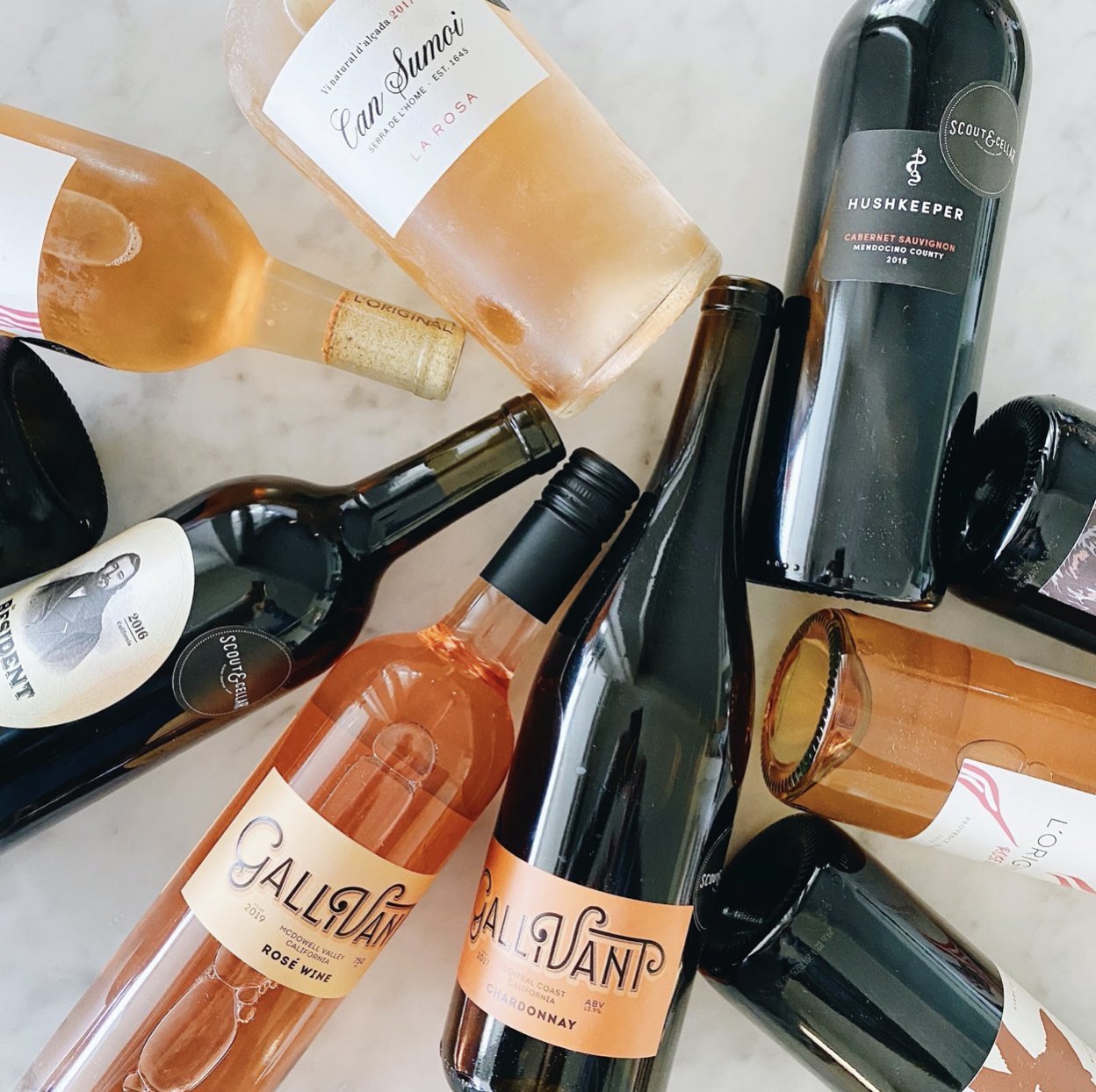Did you know that the average mass-produced bottle of wine can contain up to 16 grams of added sugar? Yikes! That’s more than a glazed donut. While we are certainly not suggesting you should drink alcohol on a regular basis, we want to share with you what may be in the wine you’re drinking and how you actually can find a cleaner, lower sugar option.
Have you ever noticed that wine, unlike food, doesn’t have a nutrition label on the bottle? Winemakers aren’t required to disclose additives, ingredients or the techniques used to produce their wine. So what exactly is in the bottle of wine that you’re drinking? Many commercially produced wines are grown with grapes farmed with synthetic pesticides and chemical additives. Many have added sugar, preservatives, coloring or one of the 250 other FDA approved products used as additives.
So what is clean-crafted wine? Clean-crafted wine is:
- Grown naturally with no synthetic pesticides; the way nature intended.
- Bottled consciously—no added sugars, chemical preservatives, or anything else
- 100% organic
- Wine that contains nothing that isn’t found in nature

In addition, every bottle of clean-crafted wine is independently tested twice through UC Davis to make sure it is free of sugars, chemical preservatives, or anything else that isn’t found in nature. Clean-crafted wines are also vegan as they do not use animal-based “fining agents” during the clarification process.
Many adults who wish to enjoy wine have started to notice negative side effects from drinking wine such as the rise and fall in blood sugar, headaches, and a general “yuck” feeling. Sometimes just one glass of vino can cause your head to throb the next day, making some people avoid drinking wine altogether. You may have heard that sulfites are the culprit for headaches; however, it’s important to know that sulfites are a naturally occurring preservative and a by-product of the fermentation process that act as a preservative against certain yeast and bacteria. Many wines can contain up to 350 ppm of sulfites; however, clean-crafted wines never contain more than 100ppm and many contain much less. Bottom line: there can be many contributing factors that can cause a headache after just one or two glasses of wine, including added sugar, added sulfites, synthetic pesticide, or anything else not found in nature. And let’s not forget that everyone’s bodies are unique :).

The good news is there are more wine companies now focused on producing organic wines free of added sugar and chemicals. One that we love and recommend is Scout & Cellar. Scout & Cellar is a fast-growing brand on a mission “to disrupt the wine industry so we can do better for you and better for our planet.“ They are passionate about getting clean, organic, biodynamic, low sugar, and vegan-friendly wines in the hands of more people. Scout & Cellar makes it easy to purchase high-quality wines that taste great at a reasonable price; no need to sacrifice taste for quality.
It is wonderful that so many growers and producers around the world are knowledgeable and really care about delicious wines that are better for you and better for the planet. And bonus – maybe you won’t feel so crappy the next day after that lovely bottle of rosé on your patio.
When drinking wine, or any alcohol, we always recommend staying well-hydrated and consuming it with food or on a full stomach.
Here is a link to the Scout and Cellar shop along with a few of our favorite wines.

Special note: We recommend consulting with your doctor first before drinking wine in order to manage your blood sugar levels.
Marnie Dachis Marmet and Stephanie May Potter co-host The Art of Living Well Podcast, where wellness is a journey and not a destination.
